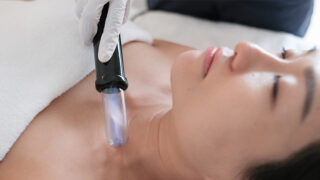Sleep is more important than you might think, affecting everything from immunity and digestion to mental wellbeing. All too often, however, sleep is one of the first things to be de-prioritised when we get super busy. So, in honour of World Sleep Day (March 19) this month, the team at Pacific Prime Singapore shares how sleep deprivation affects our overall health and helpful tips for getting a good night’s sleep, including possible sleep apnea solutions.
How many hours of sleep do we need?
While sleep needs vary among different people, the average adult needs seven to nine hours of sleep each night, according to the CDC. Older adults usually require seven to eight hours of sleep.
Depending on their age, children generally require anywhere from nine to 13 hours of sleep per night. The recommendation for teens aged 13 to 18 is eight to 10 hours in a 24-hour period.
What does sleep deprivation do to our health?
Lack of sleep has a cumulative effect on your health. The longer you go without sufficient sleep, the worse your health problems could become.
Among the short-term effects of sleep deprivation are lack of focus and poor performance at work. In addition to affecting your alertness, lack of sleep can also impact your decision-making, judgement and emotional reactivity. This can put you in danger, along with others around you.
For example, research has shown a direct link between sleep deprivation and auto accidents. According to one study, driving after sleeping less than seven hours can put you at greater risk of a car crash. Drivers who slept five hours were twice as likely to crash than those who slept seven to eight hours. The study also found that drivers who reported getting less than four hours of sleep were 15 times more likely to cause a car crash.
The long-term effects of sleep deprivation
Over time, chronic sleep deprivation can cause various issues that affect our physical and mental health. These issues may include the following:
- a weakened immune system;
- trouble processing information or recalling memories;
- weight gain and an increased risk of obesity;
- poor mental health, depression and anxiety; and
- an increased risk of chronic health conditions like heart disease, and early death.
Sleep and your heart
High blood pressure is one of the key risk factors for heart disease and stroke. Sleep plays a big role in affecting how the body’s blood pressure regulates itself. According to the CDC, not getting enough sleep can increase one’s blood pressure for a longer period of time, leading to chronic cardiovascular problems such as heart disease, high blood pressure and stroke.
What’s more, sleep apnea is a sleep disorder that causes disruptions to breathing patterns during sleep. Over time, these sleep disruptions can lead to heart problems and other serious conditions.
Sleep and your mental health
Poor sleep is linked to mental health issues such as depression and anxiety. It can have a major impact on your mood and emotions, and even impact the way you react in any type of daily situation.
A 2022 study even showed the effects that sleep deprivation can have on social interactions. Researchers found that the less sleep people got, the less willing they were to help others.
How to get a better night’s sleep
Given how sleep impacts our health, you’ll want to make a habit of getting a good night’s sleep if you’re dreaming of optimal health. But, even if you are logging seven hours of sleep nightly, there is a chance your sleep still isn’t enough in terms of quality.
That’s right, sleep quality is just as important as how many hours you get. Some signs that you aren’t getting good enough quality sleep may include:
- not feeling rested even after sleeping seven hours or more;
- waking up repeatedly throughout the night; and
- showing symptoms of a sleep disorder, such as snoring or gasping for air.
5 tips for better sleep quality
Luckily, there are things you can do to proactively improve your sleep quality. Here are some simple steps to get you started, including tips for better sleep hygiene.
#1 Set the scene for a restful night
Make sure your bedroom is set up for rest and comfort. A dark room may help you get to sleep more easily, and earbuds may be just what you need to block out any noise. You’ll also want to choose a proper mattress (memory foam might be helpful for some, and natural latex for better air circulation), pillows with proper neck support and adequate firmness, and sheets in breathable fabrics.
#2 Separate your sleep and workspaces
Especially if you’re working from home, keep your workspace out of your bedroom if you can. This will allow you to wind down for the day and avoid associating the space with work (and everything on your to-do list!).
#3 Reduce pre-slumber screen time
Electronic devices can have a big impact on your sleep cycle, as they emit blue light, which breaks down melatonin (the chemical that controls your sleep-wake cycle) levels in your body. Plus, powering down your devices ahead of bedtime will lessen distractions that stimulate your brain and keep you awake.
#4 Stick to a sleep schedule
To create a healthy sleep routine, keep a consistent sleep schedule where you wake up and go to bed at the same time every day – even on the weekends! By following a regular schedule, you’ll train your internal clock and, over time, be able to fall asleep and wake up easily.
#5 Avoid caffeine and alcohol before bedtime
Another top tip for better sleep quality is staying clear of caffeine and alcohol in the hours leading up to bedtime.
If you are very sensitive to caffeine, you may even want to consider cutting it out much earlier in the day and switching to decaf.
As for alcohol, consuming it too close to bedtime can alter your sleep stages, and ultimately affect both sleep time and quality.
#6 Talk to your doctor
Need more tips on better sleep hygiene? Ask your doctor for advice!
Also, do speak to your doctor if you think that your poor sleep is being caused by a sleep-related disorder such as Obstructive Sleep Apnea (OSA) – a chronic condition in which breathing repeatedly stops and starts. Snoring is one of the most common signs of OSA, and there are sleep studies that can be done to determine whether you require sleep apnea treatment in Singapore.
OSA can usually be treated with certain lifestyle changes, such as losing weight or quitting smoking. However, if a patient’s OSA is moderate to severe, Continuous Positive Airway Pressure (CPAP) may be recommended.
Does health insurance cover sleep apnea solutions?
Most sleep-related disorder studies and tests are considered outpatient procedures, so you’ll need to obtain health insurance that includes outpatient coverage in order to make a claim for any of these tests. Please note that not all insurance plans will provide coverage for sleep disorders under the outpatient benefit, so if you’re unsure whether a plan covers sleep-related disorders, it’s definitely worth speaking to your insurance provider to find out.
Whether you’re looking for individual health insurance in Singapore, pre-existing conditions insurance in Singapore, or other types of insurance, the experts at Pacific Prime Singapore can help you find the best policy for your family, offer insurance advice and more.
Pacific Prime Singapore
18 Cross Street, China Square Central, #14-05
6346 3781 | pacificprime.sg
Read on for more about insurance and other health and fitness topics in Singapore.
Don't miss out on the latest events, news and
competitions by signing up to our newsletter!
By signing up, you'll receive our weekly newsletter and offers which you can update or unsubscribe to anytime.





